Divinity: Original Sin was released for PC over a year ago, back in June of 2014. Developer Larian Studios just recently put the finishing touches on the "Enhanced Edition" which is a free upgrade for PC players and is also now available on consoles. Original Sin's err... original release met with critical acclaim, but what's changed in the past 15 months? Is this a worthy RPG for returning players and new console users alike? Let's get to the bottom of these mysteries with my Divinity: Original Sin Enhanced Edition review!
Full Disclosure I didn't play Original Sin prior to the Enhanced Edition release. I got a complimentary review key for this game. I'm not quite done with it yet - I've been at it for 2 weeks and dropped a solid 30+ hours in. There's a chance I might update this review if things change drastically in the last third. Whew, anyhow. Onward to the review...
Introduction to Sin
For those of you like me who didn't play Original Sin back when it came out for PC, let's go over the premise of the game and how it plays.
The Divinity series has kind of bounced around between various subgenres of RPGs. Many of the previous titles were action RPGs in the vein of Diablo. Original Sin, however, is a turn-based RPG more similar to classic Fallout or Wasteland 2.
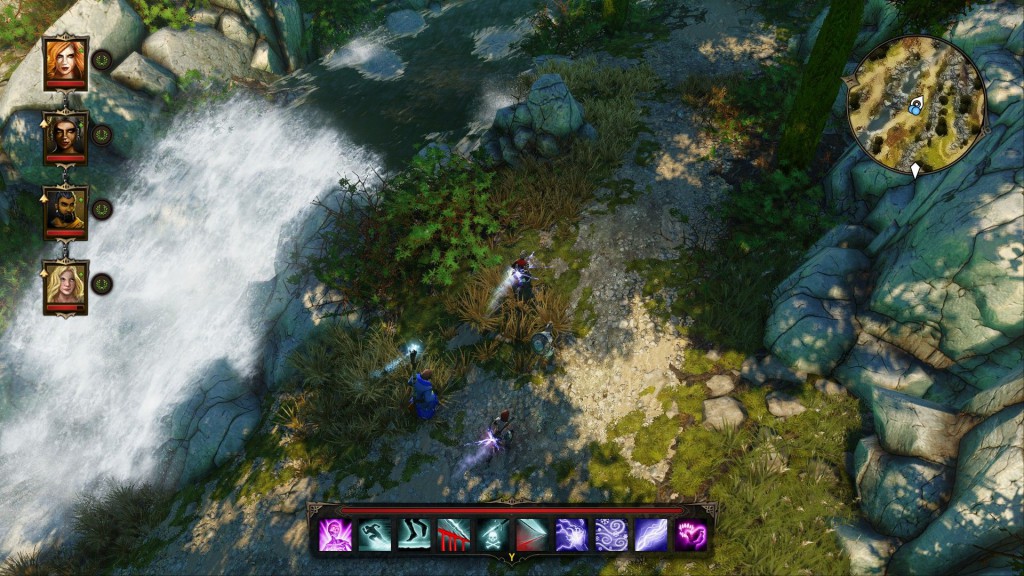
In Divinity: Original Sin, you lead a party of up to 4 members, with not one but two protagonists. These two protagonists are yours to shape as you see fit, and Original Sin is actually designed to be played cooperatively with one person controlling each of the player characters. Both players can operate independently, controlling their own character plus one or both of the NPCs that round out your 4-man team.
The plot starts off simply enough - you play as a pair of "Source Hunters" who hunt down and kill users of a forbidden power called "Source." You've been dispatched to the coastline city of Cyseal, where a mysterious murder has apparently been perpetrated by one of these "Sourcerer" types. As you explore, though, it turns out there's much more going on than meets the eye.
Divinity: Original Sin takes itself seriously in general, but isn't afraid to poke fun at itself either. There are a lot of jokes and silly moments, and a few callbacks to other games in the Divinity series.
Time for Stabbing
Combat is action point based, with the various characters using initiative to determine their turn order. When one of your characters is up, you can move, attack, or use a skill as long as your action points hold out.
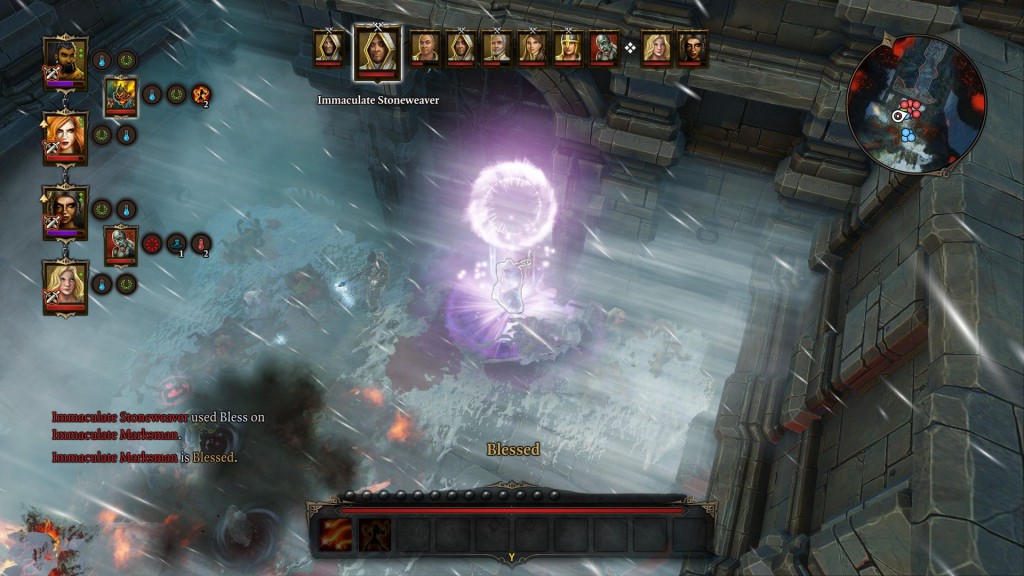
I've been playing on the easiest difficulty, but still the combat often proves challenging. Enemies are level-locked, so venturing into an area that's too high level for your team will quickly lead to a game over.
Combat is generally pretty good - I have yet to become tired of the fights, even though they can draw out for quite some time. One of the key reasons for this is that there are a lot of unique, interlocking systems that make combat interesting. Most of the environment can be modified, objects can be exploded or thrown, there's a ton of skills, and so on.
Many skills and weapons leave lingering elemental effects behind, which can be combined or negated to affect the flow of combat. For instance, a fire spell might leave a burning scar on the floor. If you then use a poison cloud effect on top, the poison will explode and damage anyone standing in the area. Alternatively, you could use a water spell which extinguishes the flame and leaves a puddle behind. Freezing or electrocuting the water can cause effects to nearby combatants.
The only downside to this is that sometimes it's hard to see the extent of things like water puddles. In a cave, the floor is already pretty dark, so determining what "wet" floor looks like can be a challenge.
Putting Your Money Where Your Feet Are
Between fights, you can upgrade your team in the standard RPG methods - gear and experience levels. Both are pretty standard fare, although they're (mostly) executed well.
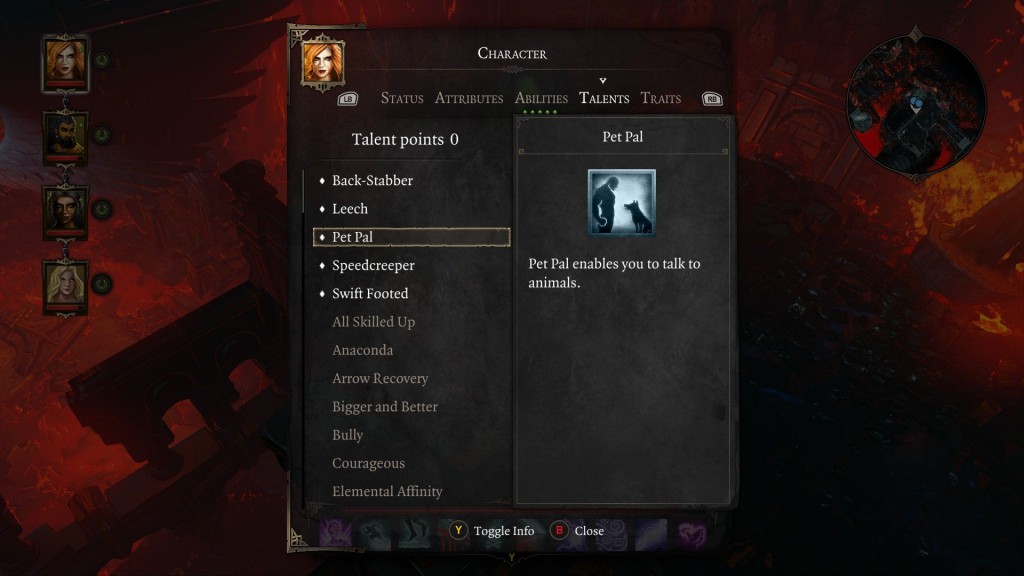
One sticking point for me is that Divinity: Original Sin doesn't really make character upgrades clear. For instance, putting points into skill trees unlocks the ability to learn new skills, but you don't know what skills are available until you find the requisite skill books.
Thus, it tends to be a better idea to hoard your skill points until you find something that makes upgrading your abilities worthwhile. It also means that you're likely to make mistakes when choosing your skills and stats. There's a respec option, but it resets your starting attributes and your learned skills as well, which might mean you can't re-get them.
There is a lot to do in the world of Divinity: Original Sin. The main questline is long and takes you through many expansive areas. There's also a wealth of side quests to distract you from your primary mission.
My chief complaint with the quests in Original Sin is that a lot of the solutions to environmental puzzles and quests are non-intuitive. Many times I found myself going online to try and find a solution to some thorny problem, only to find out I was missing something important that the game neglected to highlight or mention.
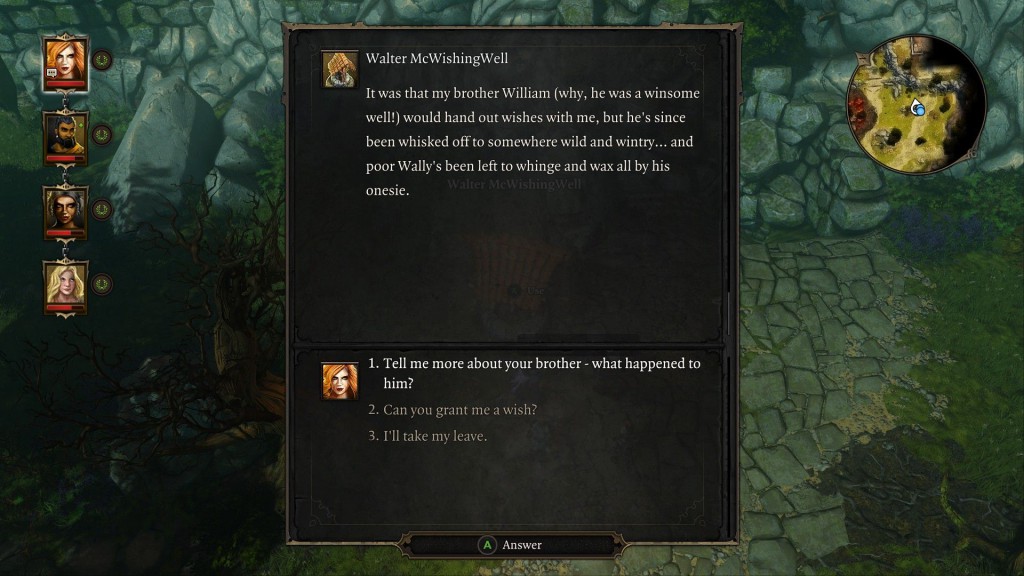
Interactions with NPCs are pretty straightforward. There is the occasional "morality check" where you can decide how to respond to a particular situation with a bit of role play. Each protagonist gets the chance to respond independently in these cases, and these choices are remembered and can affect your stats depending on your responses.
Whenever there's disagreement on how to proceed, or if NPCs need a bit of silver-tongued persuasion, a simple rock/paper/scissors minigame is employed. Personally, I tend to love talking my way out of sticky situations in RPGs, but I can't stand Divinity: Original Sin's system for this. There's too much luck and not enough skill/planning involved. I end up skipping these with extreme prejudice.
Enhanced-ments
I didn't play the original release of Divinity: Original Sin, but from reading various guides, watching gameplay videos, and reading between the lines a bit I can give you a bit of an idea as to what's been changed.
The main things that have changed relate to console support. For one, it's now possible to play Divinity: Original Sin Enhanced Edition with controllers. If you press A on your controller at the title screen, the game uses what I'll call the "console UI."
The console UI is decent, although inventory and character management are a bit tedious. There's two radial menus mapped to the triggers. One is for party management - it can be used to group party members together or to switch who you are controlling. The other is for character management of all types - inventory, log, equipment, skills, etc. I spent a lot of time staring at these menus and wishing there was a slightly easier way to interact with them.
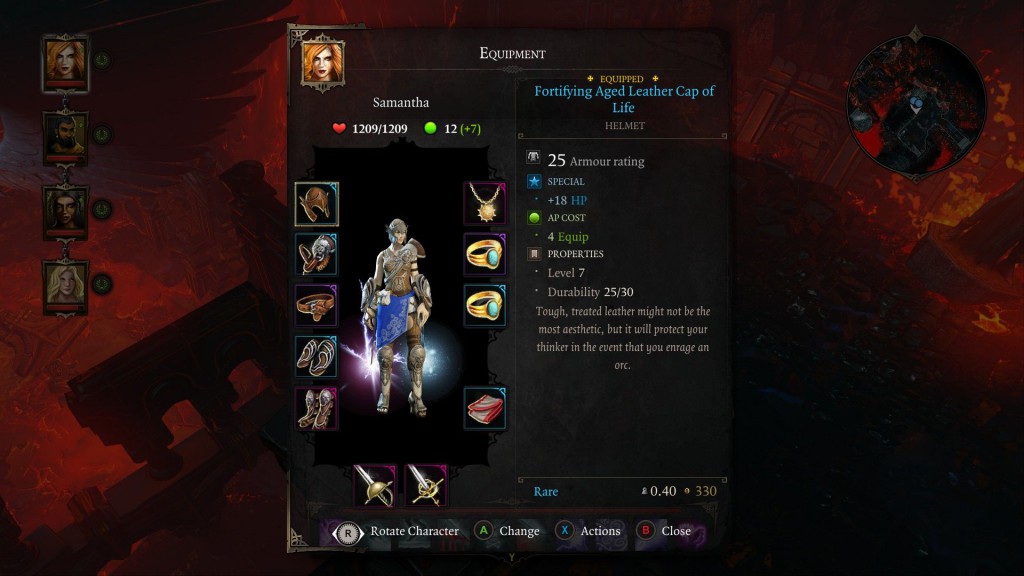
That said, there are some quality of life shortcuts. For instance, when in the inventory or looting an object, there's a simple context menu that allows you to send an item to any party member, even if they're not close to your current location. You can also identify or repair anything, and the most skilled party member will take care of the work. Key items will jump to the character that needs them automatically as well.
Another new addition is split screen support for local co-op play. If you have two controllers connected, Divinity: Original Sin can be played with a single copy on one PC. If you just own one controller, sorry - you can't play local co-op with one person on mouse + keyboard!
The split screen is a bit of a mixed bag. Sometimes UI elements like dialog boxes would show up halfway off the screen. Other times, one player's menu would block where the other player was standing. These tended to be pretty minor, and overall I'm pleased that split screen on PC was something that made it to the enhanced edition.